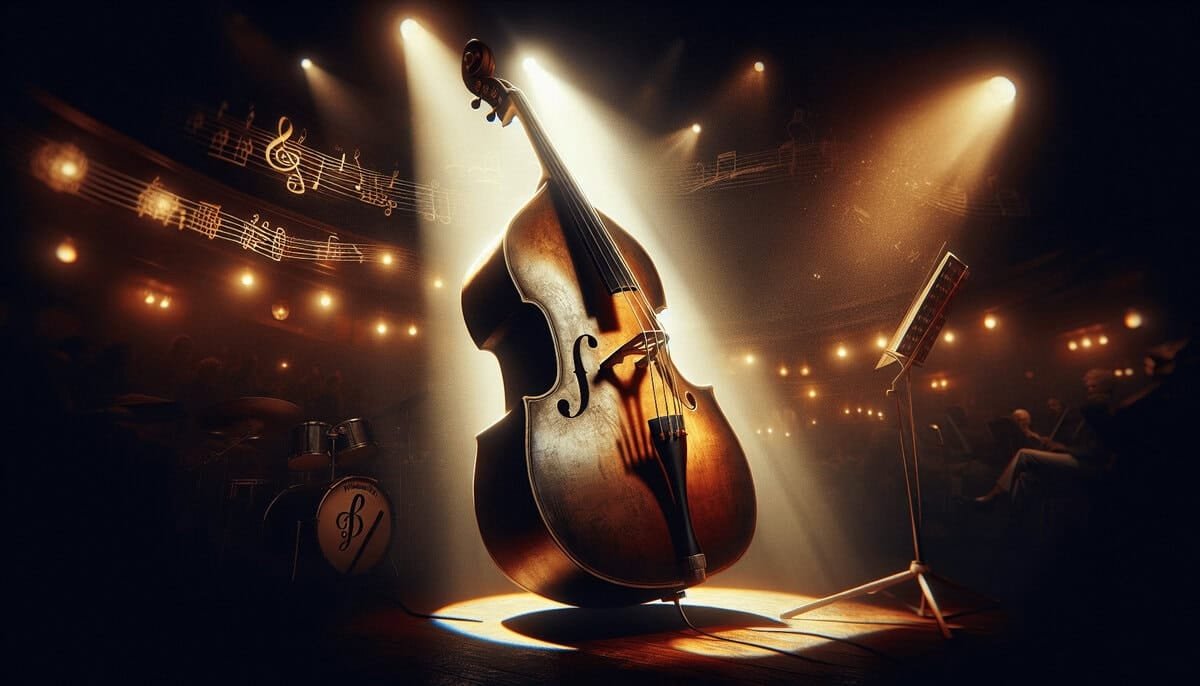What makes a legend in jazz music, and how has Dave Holland carved an indelible niche in this ever-evolving genre? When pondering the numerous facets of jazz, few artists embody its multifaceted nature as comprehensively as Dave Holland. An extraordinary musician by trade, Holland is best known for his virtuosic double bass performances, innovative compositions, and the way he effortlessly bridges classical rigor with the freedom of jazz improvisation. Through this exploration, you’ll gain not just a sense of his remarkable contributions to jazz but also the personal journey that has cemented his legacy.
Early Life and Musical Beginnings
Born on October 1, 1946, in Wolverhampton, England, Dave Holland’s musical journey began in a somewhat unorthodox manner. In his teenage years, while most of his peers might have been swayed by the burgeoning rock ‘n’ roll scene, Holland found himself drawn to the sounds of jazz, specifically the double bass. Learning to play by ear, he navigated the landscapes of various genres long before formal training would enrich his natural talent. By 15, Holland was gigging with local bands, a testament to his innate musical ability and drive.

Joining Miles Davis’s Band
Perhaps one of the most pivotal moments in Holland’s career occurred in 1968 when he was introduced to the legendary trumpet player Miles Davis in London’s Ronnie Scott’s Jazz Club. Just a week after meeting, Holland replaced Ron Carter as Davis’s bassist and embarked on musical projects that would become landmarks in the history of jazz. Albums like “Bitches Brew” and “In a Silent Way” not only revolutionized jazz fusion but also highlighted Holland’s profound ability to adapt and innovate.
Musical Innovations and Style
Holland’s work with Davis marked the beginning of his ascent as a jazz innovator. Known for his use of rhythm, harmony, and—a hallmark of his style—unpredictability, he became an architect of soundscapes that challenged and transformed modern jazz.
Focus on Rhythm
For Holland, rhythm is more than just timing—it’s a foundational element that breathes life into his compositions. His bass lines often take on a conversational quality, interacting dynamically with other instruments to create textures rich in depth and complexity.
Harmonies and Melodic Development
A characteristic Holland harmony often involves unexpected turns, threads of dissonance that resolve into consonance, creating tension and release. These strategic moves are not chaotic but rather are crafted to invite both musicians and listeners into a narrative arc within the music.
Leading His Ensembles
Beyond his work with Davis, Holland made significant strides as a bandleader. His debut as such was with the release of Conference of the Birds in 1973. This album became a beacon of modern jazz ethos, blending free improvisation with structured compositions.
The Dave Holland Quintet
In the early 1980s, Holland formed what became known as the Dave Holland Quintet. The quintet was a platform through which he not only highlighted his compositional prowess but also nurtured the talents of upcoming jazz musicians. The synergy within these groups led to recordings that were both groundbreaking and influential, such as Prime Directive and Points of View.
Big Band and Beyond
Holland didn’t limit his explorations to smaller ensembles. His interests and talents extended into the realm of big band jazz, which resulted in the formation of the Dave Holland Big Band. Albums like Overtime have demonstrated his capacity to take the lessons and innovations of his earlier career and scale them into triumphant orchestral experiences.
Collaborative Spirit and Mentorship
A prevailing theme in Holland’s career is his commitment to collaboration and mentorship. Jazz, by its nature, flourishes through the exchange of ideas, and Holland has been instrumental in cultivating environments that stimulate and challenge musical thought.
Pioneering Collaborations
Aside from his work with Miles Davis, Holland has collaborated with an array of luminaries across different jazz styles and generations, including Herbie Hancock, Chick Corea, and John Scofield. These collaborations are marked by mutual respect and artistic dialogue that transcend simple partnership.
Nurturing New Talent
One cannot underestimate Holland’s role as a mentor to young jazz musicians. Through his bands and workshops, he has consistently fostered the development of emerging artists, emphasizing the importance of creating new paths within the jazz tradition.
Recognition and Awards
Holland’s contributions have not gone unnoticed by the music community. A recipient of multiple Grammy Awards and other honors, his career achievements reflect the impact he has had on the jazz world.
Critical Acclaim
Critics and fans alike are quick to laud Holland’s mastery of the bass and his unique compositional voice. His work is frequently cited in discussions of the best jazz albums, and he is recognized for influencing both the genre and the musicians around him.
Personal Insights and Philosophy
Understanding Dave Holland’s musical legacy involves peering into his personal principles and philosophies that inform both his life and his music.
An Ear for Innovation
At the heart of Holland’s philosophy is a relentless pursuit of innovation. For him, jazz is a living, breathing form of expression that evolves with each new contribution. He places a strong emphasis on listening, not just hearing, as the foundation of his musical and personal interactions.
Bridging Cultures and Styles
Holland has always seen jazz as a bridge uniting different cultures and styles. His compositions often weave together elements from various musical traditions, creating something that is universally resonant while remaining deeply personal.
Conclusion: Dave Holland’s Lasting Legacy
To talk about Dave Holland is to talk about more than just a musician; it’s to explore a continuous journey of artistic exploration and human connection. By consistently challenging himself and those around him, Holland has not only contributed significantly to the jazz canon but has also redefined what it means to be a collaborator and leader in the music world.
In reflecting on the many dimensions of Dave Holland’s jazz legacy, you find a rich tapestry of soundscapes, relationships, and innovations that continue to inspire fans and musicians alike. His life’s work offers a timeless invitation to engage with music not just as a form but as a dialogue—one that persists with every note played and every silence embraced.
Meta Description
Explore the profound impact of Dave Holland’s jazz legacy. Discover his journey, collaborations, and innovations that have redefined modern jazz.

